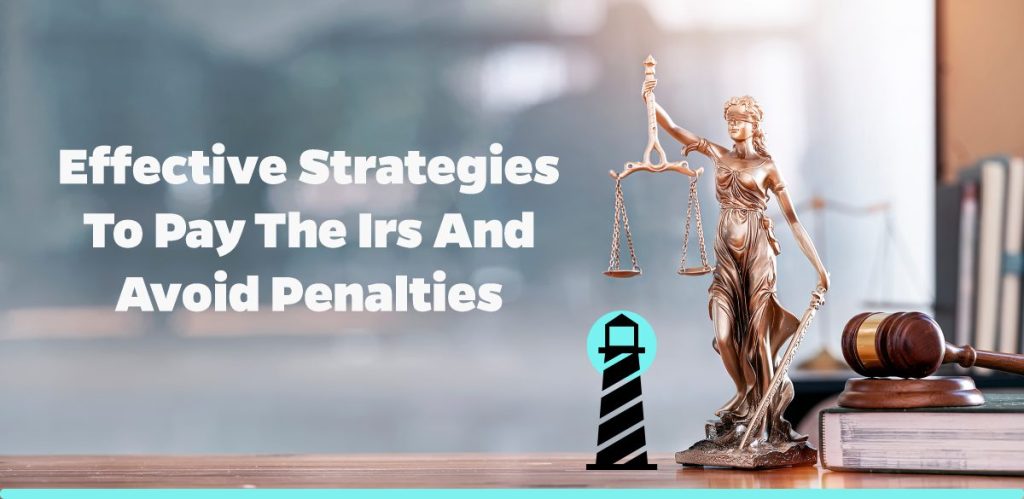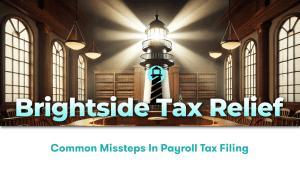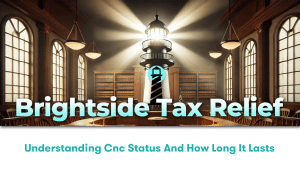Understanding The IRS and Your Obligations
When it comes to managing finances and taxes, one of the crucial players is the Internal Revenue Service (IRS). As an established tax relief company, Brightside Tax Relief LLC, we will walk you through effective strategies to pay the IRS and avoid penalties. Understanding the mechanisms of the IRS, your obligations, and the available options can significantly reduce potential stress and financial strain.
For individuals and businesses alike, paying taxes is a legal obligation. However, there are times when unexpected circumstances such as job loss, medical emergencies, or other financial hardships can make it difficult to meet these obligations. Consequently, taxpayers might find themselves unable to pay owed taxes, leading to high-stress situations and financial penalties.
Establishing a Clear Understanding of Tax-Related Penalties
One of the foremost steps in managing a potential tax crisis is understanding the penalties linked with late or missed tax payments. There can be hefty penalties for filing late, paying late, or not paying enough through estimated tax payments or withholding. There are also charges added for each month the tax is not fully paid. The rates and conditions for each penalty vary, and they can accumulate until the maximum penalty limit of 25% is reached.
Brightside Tax Relief LLC’s Effective Strategies to Pay the IRS
As an experienced tax relief company, Brightside Tax Relief LLC has put together some practical strategies to help you pay the IRS and avoid possible penalties.
Apply for an Installment Agreement
One of the accessible avenues to pay back your owed taxes is through an installment agreement. This agreement allows taxpayers to pay their liabilities over time in monthly installments. Depending on the amount owed, different installment options are available. There are guaranteed installment agreements, streamlined installment agreements, and non-streamlined installment agreements. The specific details and eligibility criteria for each type are available on the IRS website.
Request a Short-Term Payment Plan
For individuals who can afford to pay their tax debts in a short duration, the IRS offers a short-term payment plan. This strategy allows you to pay your tax debts in 120 days or less. The IRS does not charge a setup fee for this arrangement, making it a cost-effective method to pay your dues and avoid penalties.
Consider an Offer in Compromise
An offer in compromise (OIC) is an agreement between a taxpayer and the IRS that settles a taxpayer’s tax liabilities for less than the full amount owed. This method is available to taxpayers who cannot pay their tax debt or doing so creates a financial hardship. It’s essential to understand that the IRS generally approves an OIC only when the amount offered by a taxpayer is considered the most that can be paid within a reasonable period.
Filing for Bankruptcy
In extreme cases, filing for bankruptcy might be a feasible option for debt relief. Bankruptcy can either eliminate tax debt entirely or enable the debtor to repay a portion of the debt over time. However, there are important considerations, such as the timing of tax assessments and the type of taxes owed. Bankruptcy can also have severe consequences on your credit score and future ability to borrow. Hence, this option should only be considered when every other solution proves ineffective.
Seeking Professional Help
Complex tax situations might require professional intervention. As a trusted tax relief company, Brightside Tax Relief LLC offers comprehensive tax resolution services that cater to various tax-related issues. Our team combines legal knowledge with negotiation skills to offer effective solutions tailored to your individual circumstances.
Conclusion
Understanding your options and knowing how to navigate through the process of paying the IRS can alleviate much of the stress associated with tax debt. At Brightside Tax Relief LLC, our goal is to illuminate the complexities of dealing with tax liabilities and penalties. With the right strategy and professional assistant, you can smoothly navigate this process, resolve your tax issues, and avoid potential penalties.




